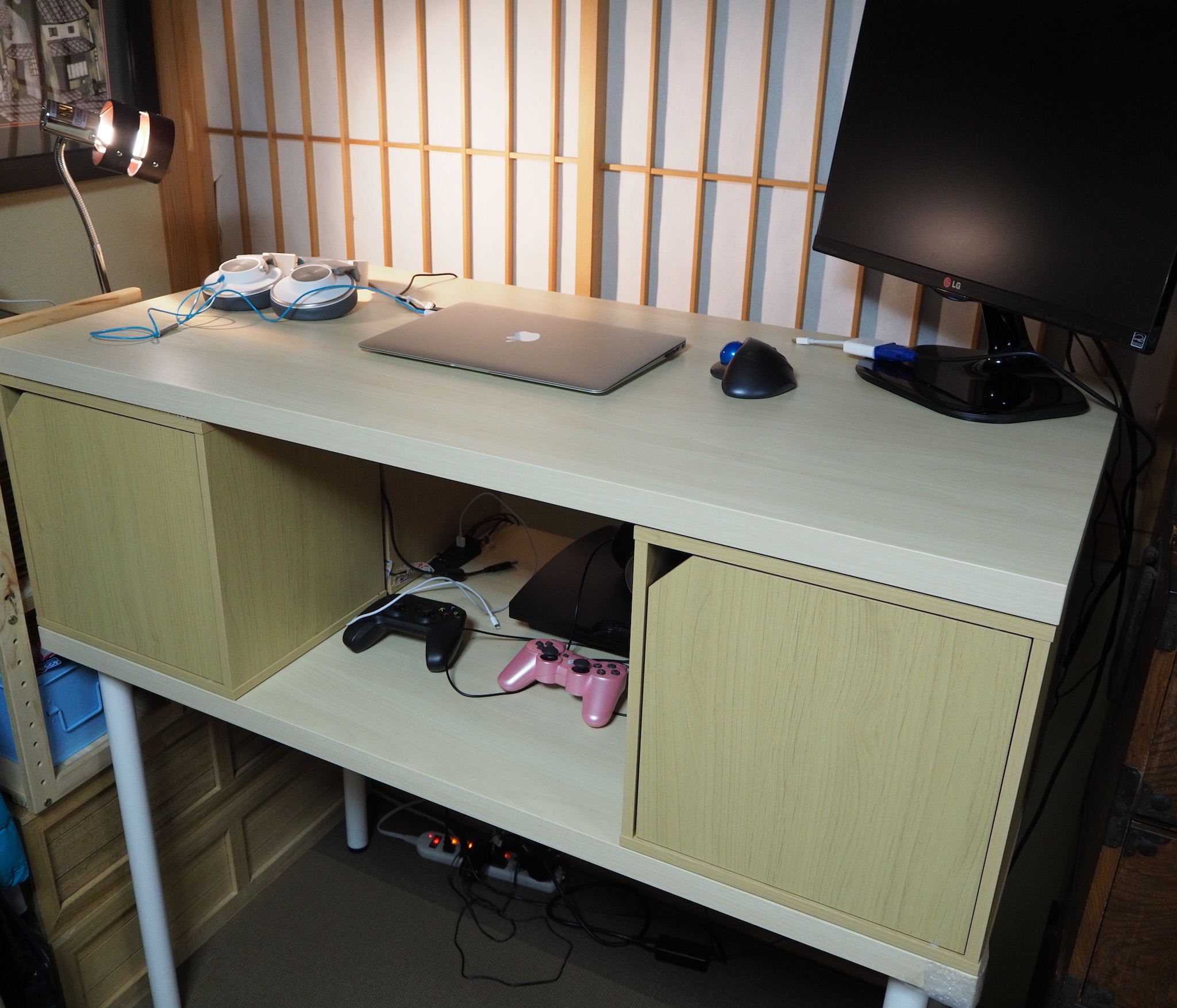Last Man Sitting
Reports and recommendations for standing desks have crossed my way many times. Ever since I first heard of the idea it sounded like an interesting experiment worth trying, but the prices of those type of (adjustable) standing desks were too high (they still are) to just “have a try” with the risk of having a very expensive piece of furniture standing around nobody wants to use.
Just before the end of the year I found an article by Danny Choo detailing how he built his standing desk for very cheap: DIY Standing Desk. I liked the idea and how the table turned out for him, so I went ahead and got one for myself as well.

I’ve used it for a while now and have to say I’m very happy with it. I feel much more comfortable standing in front of my computer instead of sitting in a chair even though the first couple days were a bit hard. Standing at the same spot for a long period of time can be tiring for the feet. My home office has a tatami floor, which helps a lot to stand more comfortably for an extended period, but that’s not enough. To counter this I decided to organise my office in a way that forces me to move around at least a little bit over the course of a day.
The printer is in the opposite corner of the room. I admit that doesn’t make a big difference as it is barely used anyway. Accessories like headphones, writing utensils or batteries and usb sticks are kept in the opposite of the room as well. After a shocking incident in which a drink and computer hardware had a close encounter I made a habit of keeping a save distance between fluids and my computing equipment at all times. Water and coffee supplies are kept in the adjacent room, making drinking the main reason for movement throughout the day. These examples should be enough to draw a picture of the general idea of keeping all the items needed over the course of a working day/session as distributed as possible to avoid standing still at the exact same spot for too long. It is also nice to be able to do light dancing while working and listening to music.
The only thing I was not so fond of in Danny Choo’s example standing desk was the use of cardboard boxes to achieve a comfortable height. While undeniably cheap they are also pretty ugly, especially as I am working in a rather nice Japanese style room with lots of wood and tatami. I used cardboard boxes only for the first couple days to adjust and readjust the height until I found a comfortable one. I replaced them with wooden boxes that fit in much more nicely and - as a nice side effect - turn the dead space between the table plates into useful storage space. It would also be possible to occasionally use the lower portion as a small traditional sitting desk, but I haven’t felt the need to do so yet. The boxes obviously make the overall desk a little bit more expensive, but to me the improved looks and utility are totally worth it.